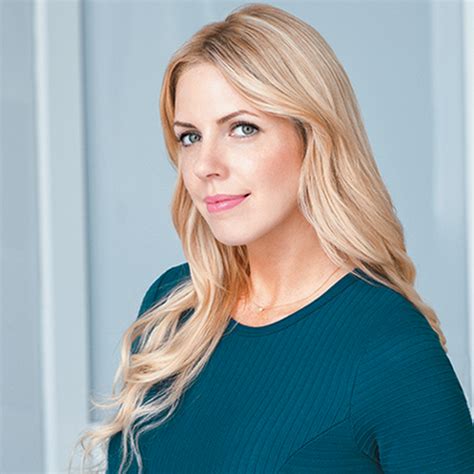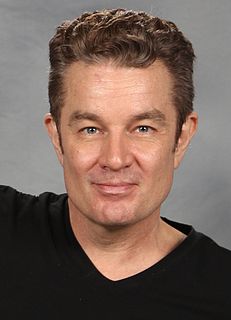A Quote by Maya Rudolph
I learned the enormous power of writing for yourself, especially now that people seem to be receptive to the fact that women can write.
Related Quotes
The secret to writing is just to write. Write every day. Never stop writing. Write on every surface you see; write on people on the street. When the cops come to arrest you, write on the cops. Write on the police car. Write on the judge. I'm in jail forever now, and the prison cell walls are completely covered with my writing, and I keep writing on the writing I wrote. That's my method.
Gather knowledge about the craft of writing. Immerse yourself in the art of it. Then write. Write yourself silly. Write yourself mad. Write yourself blind. Trust the excitement that builds within you when the idea is good and the writing is superb. You can do it, but that's the hell of it as well as the exultation of it. You have to do it.
I have a process that I seem to always, to some degree, as a writer, adhere to, but I certainly have never imposed the way I write a novel on my students. When I had students, I never said, "You should never start writing a novel until you have the last sentence." I never did that, and I wouldn't do it now, but people now seem so interested in the process [of writing fiction] that I have to constantly make it clear when I describe mine that I'm not being prescriptive. I'm not proselytizing.
Be ruthless about protecting writing days, i.e., do not cave in to endless requests to have "essential" and "long overdue" meetings on those days. The funny thing is that, although writing has been my actual job for several years now, I still seem to have to fight for time in which to do it. Some people do not seem to grasp that I still have to sit down in peace and write the books, apparently believing that they pop up like mushrooms without my connivance. I must therefore guard the time allotted to writing as a Hungarian Horntail guards its firstborn egg.
People who write for reward by way of recognition or monetary gain don't know what they're doing. They're in the category of those who write; they are not writers. Writing is simply something you must do. It's rather like virtue in that it is its own reward. Writing is selfish and contradictory in its terms. First of all, you're writing for an audience of one, you must please the one person you're writing for. Yourself.
Everyone tells you to write what you know. It’s the tried-and-true advice every writer hears at some point in her career. But to take my writing to a deeper level, I’ve found that a better practice is to simply write what frightens you, haunts you, even. I now keep a sign on the bulletin board in my office that reads: 'Write What Scares You.' I’ve learned that tapping into the hard stuff — whether it’s the fear of loss or a boogeyman lurking in childhood memories — is what ultimately gives a story the power to leap off the page and grab you by the collar.
Let's say I've directed that [writing] energy into writing my latest book but suddenly, I really want to write about an onion. I don't say to myself, "No, you have stay on the subject," because I know that the longer I stay on the subject the more boring I get. So, if my mind wants to write about an onion, it might be a deeper way to go into what I'm working on, even though it might seem irrelevant. This is how I've learned to follow my mind.
Write what you want to read. So many people think they need to write a particular kind of book, or imitate a successful style, in order to be published. I've known people who felt they had to model their book on existing blockbusters, or write in a genre that's supposed to be "hot right now" in order to get agents and publishers interested. But if you're writing in a genre you don't like, or modeling yourself on a book you don't respect, it'll show through. You're your first, most important reader, so write the book that reader really wants to read.
I feel that the thing about film and particularly about TV, actually, is it's being created now. We're living in the best time so far because there are many more women writing and women directing, women producing, and people are finally catching on to the fact that women want to go and buy tickets to see female characters and more than one in a film. So I actually think it's a very fertile time to be a woman over 40.




































